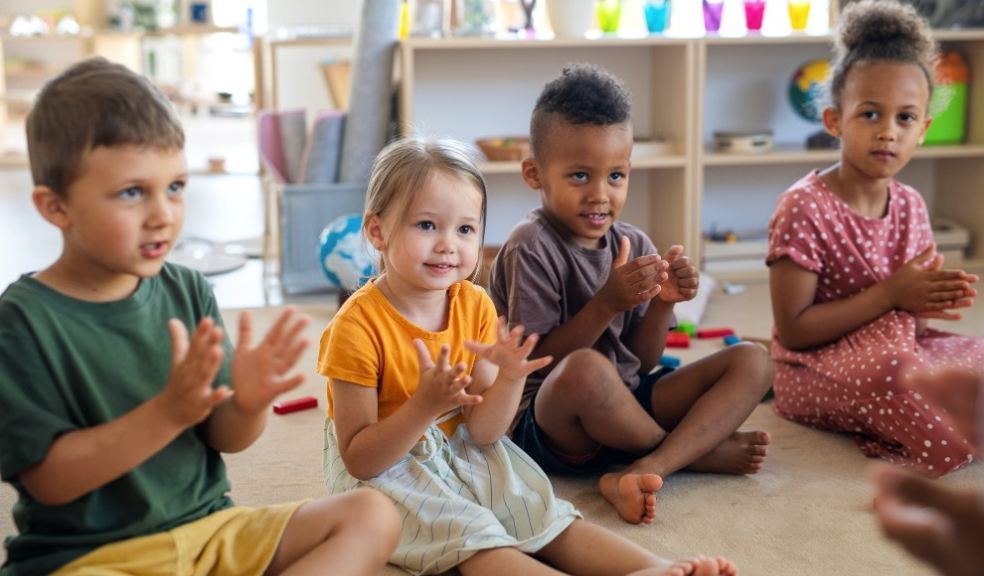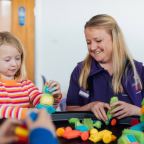
Building Confidence: Helping Preschoolers Navigate Social Situations
As parents, caregivers, and educators, one of your primary responsibilities is to nurture and support the development of young children. Socialization is paramount Among the many skills children acquire during their formative years. The ability to interact with peers and adults is crucial not only for their immediate happiness but also for their long-term success.
In this article, you'll explore effective strategies for building confidence in preschoolers and helping them navigate social situations, ultimately improve socialization outside prekindy.
Understanding The Importance Of Socialization
Before delving into strategies for building confidence in preschoolers, it's essential to understand why socialization is vital at this stage of development. It's the process by which children learn to interact, communicate, and cooperate with others. It sets the foundation for their future relationships, emotional well-being, and cognitive development.
During preschool, children are like sponges, absorbing information and experiences from their surroundings. According to a guide from Little Scribblers, social interactions provide opportunities to develop essential life skills, such as empathy, problem-solving, and effective communication. Moreover, positive social experiences can boost a child's self-esteem and overall confidence, which will serve as a solid foundation for future social interactions.
Creating A Nurturing Environment
To help preschoolers navigate social situations successfully and build confidence, it's crucial to establish a nurturing environment that fosters positive social interactions. Here are some key steps to achieve this:
- Encourage Playdates And Group Activities
Arrange playdates and group activities to allow children to interact with their peers in a relaxed and supervised setting. During this time, children can practice sharing, taking turns, and resolving conflicts—all essential social skills. Be sure to choose age-appropriate activities and facilitate positive interactions while allowing them to explore and learn independently.
- Model Social Behavior
Children often learn by observing adults, so modelling positive social behaviour is essential. Display kindness, empathy, and effective communication when interacting with others. When conflicts arise, demonstrate how to resolve them calmly and constructively. These actions teach preschoolers valuable social skills and reinforce the importance of treating others with respect and understanding.
- Foster Communication Skills
Effective communication is a cornerstone of successful socialization. Encourage preschoolers to express themselves clearly and listen actively when communicating with others. Engage in conversations with them, ask open-ended questions, and show genuine interest in their thoughts and feelings. You empower them to navigate social situations confidently by fostering strong communication skills.
- Celebrate Achievements
Recognize and celebrate your child's achievements, no matter how small they may seem. Positive reinforcement builds confidence and encourages them to continue striving for success. When they successfully navigate a social situation or exhibit good social skills, offer praise and encouragement. Celebrating their accomplishments also helps reinforce positive behaviour.
- Teach Empathy And Perspective-Taking
Empathy is a critical skill that helps children connect with others on an emotional level. Teach preschoolers to understand and identify feelings in themselves and others. Use stories, role-play, and real-life situations to help them practice empathy and perspective-taking. When children can put themselves in someone else's shoes, they become more considerate and compassionate.
- Provide Opportunities For Independence
Encourage preschoolers to make choices and decisions independently. You help build their confidence in their abilities by giving them opportunities to exercise autonomy. Whether selecting their clothes, choosing snacks, or deciding on activities, these small choices empower children and prepare them for more significant social challenges.
- Address Challenges And Fears
It's common for preschoolers to experience social challenges and fears, such as separation anxiety or shyness. When these issues arise, address them with patience and understanding. Offer comfort and support, and gradually expose them to situations that challenge their fears in a safe and controlled manner. Over time, with your guidance, they can overcome these obstacles and develop greater confidence.
- Encourage Friendships
Help your preschooler build friendships by facilitating interactions with compatible peers. Arrange playdates with children who share common interests or attend the same prekindergarten classes. As they develop friendships, they'll gain confidence in connecting with others, making social situations more comfortable and enjoyable.
- Be A Supportive Observer
While it's essential to provide guidance, it's equally important to step back and observe your child's social interactions. This allows you to assess their progress, identify areas where they may need additional support, and celebrate their successes. Avoid intervening in every situation, as children need the freedom to learn and grow through their experiences.
- Seek Professional Guidance If Needed
If you notice persistent social challenges or behavioural issues that hinder your child's ability to navigate social situations, don't hesitate to seek professional guidance. A child psychologist or counsellor can provide valuable insights and strategies to effectively address specific concerns and support your child's social development.
Conclusion
Building confidence in preschoolers and helping them navigate social situations is a rewarding journey that sets the stage for their future social interactions and relationships. By creating a nurturing environment, modelling positive social behaviour, fostering communication skills, and addressing challenges with patience and empathy, you can empower your child to thrive socially. Celebrate their achievements, encourage friendships, and seek professional guidance when necessary. With your guidance and support, you can help your preschooler develop the confidence and skills needed to succeed in social situations, laying a strong foundation for their future growth and well-being.













